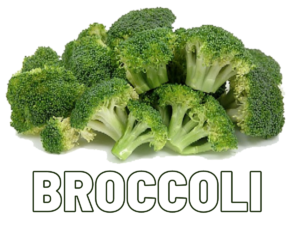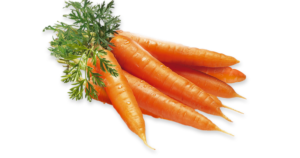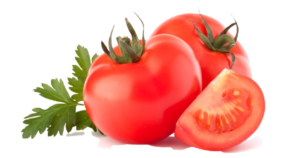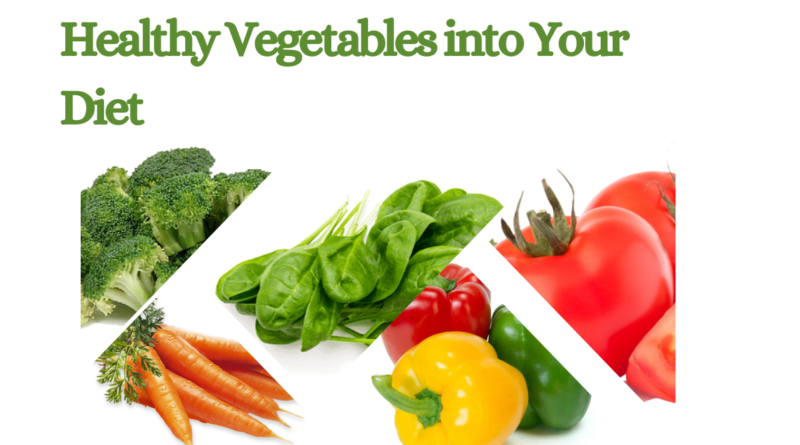The Benefits of Incorporating Healthy Vegetables
There are numerous Healthy vegetables that you can incorporate into your diet. Here are some examples:
Broccoli Healthy Vegetables
Broccoli, a cruciferous vegetable, is an excellent addition to a healthy diet. Here are some of the benefits of incorporating broccoli into your meals:
Nutritional powerhouse: Broccoli boasts essential vitamins and minerals, including vitamin C, vitamin K, folate, and potassium. It also provides fiber, aiding digestion and promoting feelings of fullness.
Cancer-fighting properties: Broccoli contains compounds called glucosinolates, which the body can convert into cancer-fighting substances. Research suggests that regularly consuming broccoli may help reduce the risk of certain types of cancer, such as breast, prostate, and colon cancer.
Heart health: The fiber, antioxidants, and anti-inflammatory properties in broccoli contribute to maintaining a healthy heart. Studies have shown that diets rich in cruciferous vegetables like broccoli may lower the risk of heart disease.
Digestive health: Broccoli’s high fiber content supports a healthy digestive system by promoting regular bowel movements, preventing constipation, and fostering the growth of beneficial gut bacteria.
Immune support: Broccoli is abundant in vitamin C, a crucial nutrient for a healthy immune system. Vitamin C helps protect against common illnesses and infections.
Anti-inflammatory properties: Broccoli contains various antioxidants and anti-inflammatory compounds that help reduce inflammation in the body. Chronic inflammation is linked to diseases like heart disease, diabetes, and certain types of cancer.
Weight management
Broccoli’s low calorie and high fiber content make it an excellent addition to weight-loss or weight management plans. Its fiber promotes satiety, helping you feel fuller for longer.
Bone health: Broccoli serves as a good source of calcium, vitamin K, and other nutrients vital for maintaining healthy bones. These nutrients contribute to bone density and may help reduce the risk of osteoporosis.
Skin health: Broccoli’s antioxidants and vitamins, such as vitamin C and beta-carotene, support healthy skin by protecting against sun damage and aiding collagen production.
Incorporating broccoli into your meals can provide a wide range of health benefits. Whether you steam, roast, sauté, or include it in salads and stir-fries, this versatile vegetable remains a nutritious addition to any diet.

Spinach Healthy Vegetables
Spinach: Spinach belongs to the amaranth family and is a nutrient-rich leafy green vegetable. People highly regard it for its numerous health benefits, and it features as a popular ingredient in various cuisines worldwide.
Nutritional Value: Spinach contains essential vitamins and minerals, serving as an excellent source of vitamin K, vitamin A, vitamin C, and folate. Additionally, it provides significant amounts of iron, calcium, potassium, magnesium, and dietary fiber.
Antioxidants: Spinach is rich in antioxidants, such as beta-carotene, lutein, zeaxanthin, and flavonoids. These compounds actively help protect the body from oxidative stress, which can lead to various chronic diseases.
Heart Health: The nutrients in spinach play a vital role in promoting heart health. Potassium, present in spinach, helps regulate blood pressure, while its antioxidants actively reduce inflammation and prevent the oxidation of cholesterol.
Bone Health: Spinach contributes to bone health through its vitamin K content, which assists in the synthesis of osteocalcin, a protein essential for maintaining bone density and strength
Eye Health: Spinach’s lutein and zeaxanthin content actively benefits eye health and may reduce the risk of age-related macular degeneration and cataracts.
Cancer Prevention: Research suggests that the antioxidants and phytochemicals in spinach actively exhibit anti-cancer properties, potentially reducing the risk of certain types of cancers.
Weight Management
Spinach’s low-calorie and high-fiber characteristics make it an excellent choice for individuals aiming to manage their weight and support a healthy digestive system.
Versatility: Spinach offers versatility in culinary applications. People can consume it raw in salads, sauté it as a side dish, blend it into smoothies, or cook it in various dishes like soups, stews, and pasta.

Carrots Healthy Vegetables
Carrots are a popular and widely consumed root vegetable known for their vibrant orange color and numerous health benefits. Here are some key facts about carrots:
Nutritional Value: Carrots are packed with essential nutrients. Notably, they are rich in beta-carotene, a precursor to vitamin A. As a result, carrots are often associated with promoting good vision and eye health. In addition to beta-carotene, they also contain vitamin K, vitamin C, potassium, fiber, and various other vitamins and minerals.
Eye Health: Due to their high beta-carotene content, carrots play a vital role in supporting eye health. The body converts beta-carotene into vitamin A, which is essential for maintaining healthy eyesight. Consequently, regular consumption of carrots may help prevent conditions like night blindness.
Antioxidants: Carrots contain a variety of antioxidants, including beta-carotene and other carotenoids. These powerful compounds actively protect the body from oxidative stress, which can contribute to aging and certain diseases.
Heart Health: Not only are carrots beneficial for eye health, but they are also good for the heart. Their potassium content aids in regulating blood pressure. Additionally, the fiber in carrots can help reduce cholesterol levels, promoting heart health.
Digestive Health: Thanks to their substantial fiber content, carrots support a healthy digestive system. Consequently, including carrots in your diet can aid in preventing constipation and promoting regularity.
Skin Health: The antioxidants found in carrots can also have positive effects on the skin. They may contribute to a healthy complexion and protect the skin from damage caused by UV rays and environmental pollutants.
Low-Calorie Snack: For those looking for a healthy and low-calorie snack option, carrots are an excellent choice. Not only do they provide natural sweetness, but they also boast a low calorie content.
Versatility
Whether enjoyed raw as a crunchy snack, juiced, roasted, or incorporated into various dishes like soups, stews, and salads, carrots offer versatility in the kitchen.
Carrots come in different colors, including purple, red, yellow, and white, each with its unique nutritional profile. As such, exploring various carrot varieties can add diversity to your diet.

Tomatoes Healthy Vegetables
Tomatoes are nutrient-rich fruits that are widely consumed as vegetables in various cuisines worldwide. Here are some key facts about tomatoes:
Nutritional Value: Tomatoes are nutrient-rich fruits that are widely used as vegetables in culinary applications. They are an excellent source of vitamin C, vitamin K, potassium, and antioxidants like lycopene.
Lycopene: Tomatoes are particularly known for their high lycopene content. Lycopene is a potent antioxidant that gives tomatoes their red color and has been associated with various health benefits, including supporting heart health and reducing the risk of certain cancers.
Heart Health: Consuming tomatoes may contribute to heart health due to their lycopene content and potassium levels. Lycopene helps lower LDL cholesterol levels, while potassium helps maintain healthy blood pressure.
Cancer Prevention: Some studies suggest that regular consumption of tomatoes and lycopene may help reduce the risk of certain cancers, such as prostate cancer.
Eye Health: Tomatoes are a good source of vitamin C and beta-carotene, both of which are essential for eye health. These nutrients help protect the eyes from age-related macular degeneration and other vision problems.
Skin Benefits: The antioxidants in tomatoes can promote healthy skin by protecting it from damage caused by UV rays and other environmental factors.
Versatility: Tomatoes are incredibly versatile in cooking and can be used in various dishes, including salads, sauces, soups, and sandwiches.
Types of Tomatoes
There are many different types of tomatoes, each with its unique flavor and culinary uses. Some popular varieties include beefsteak, cherry, plum, and heirloom tomatoes.
Tomatoes offer a range of nutritional benefits. While fresh tomatoes are commonly enjoyed, processed tomato products like canned tomatoes, tomato paste, and tomato sauce are also widely used in cooking and provide their unique advantages.
For instance, fresh tomatoes are rich in vitamin C, vitamin K, and antioxidants like lycopene, making them a great addition to salads, sandwiches, and salsas. On the other hand, processed tomato products, such as canned tomatoes, are convenient and have a longer shelf life, allowing people to enjoy tomatoes even when they are out of season.
Additionally, tomato paste is a concentrated form of tomatoes, intensifying the flavor and adding thickness to sauces and stews. Moreover, it is an excellent source of lycopene, which is known for its potential health benefits.
Furthermore, tomato sauce is a popular ingredient in various cuisines, providing a flavorful base for pasta dishes, pizzas, and casseroles. In contrast, canned diced tomatoes are versatile and can be used in soups, chili, and other recipes where the texture of the tomatoes is essential.
In conclusion, whether you choose to enjoy fresh tomatoes or incorporate processed tomato products into your meals, you can take advantage of the nutritional benefits and delicious flavors they bring to your cooking.

Bell Peppers Healthy Vegetables
Bell peppers, also known as sweet peppers or capsicums, are colorful and versatile vegetables widely used in various cuisines. Here are some key facts about bell peppers:
Color Varieties: Bell peppers come in various vibrant colors, including green, red, yellow, orange, and even purple. Each color has its unique flavor and nutritional profile.
Nutritional Value: These peppers are a rich source of vitamins and minerals. They are particularly high in vitamin C, providing more than twice the amount found in most citrus fruits. Bell peppers also contain vitamin A, vitamin B6, vitamin K, folate, and potassium.
Antioxidants: Bell peppers are packed with antioxidants, such as carotenoids (beta-carotene, lutein, and zeaxanthin) and flavonoids. These compounds help protect the body from harmful free radicals and oxidative stress.
Heart Health: The high levels of potassium and fiber in bell peppers contribute to heart health. Potassium helps regulate blood pressure, while fiber aids in reducing cholesterol levels.
Eye Health: The carotenoids, especially lutein and zeaxanthin, found in bell peppers are beneficial for eye health and may reduce the risk of age-related macular degeneration and cataracts.
Low-Calorie Option: Bell peppers are low in calories and make a great addition to weight management plans or for those looking to maintain a healthy weight.
Cooking Versatility: These peppers can be enjoyed raw as a crunchy snack, sliced in salads, grilled, roasted, sautéed, or stuffed with various fillings.
Culinary Uses: Bell peppers are widely used in many dishes, such as stir-fries, fajitas, pasta, omelets, and as a pizza topping.
Storage and Selection
When selecting bell peppers, look for ones that are firm, glossy, and free from blemishes. Store them in a cool, dry place or in the refrigerator for extended freshness.
Bell Peppers and Capsaicin: It’s essential to note that bell peppers are not spicy. They do not contain capsaicin, the compound responsible for the heat found in hot peppers like chili peppers and jalapeños.
Including bell peppers in your diet can add color, flavor, and a dose of essential nutrients to your meals. Whether you prefer them raw or cooked, these versatile vegetables are a delicious and nutritious choice.

Conclusion
In conclusion, the top five Healthy vegetables discussed—broccoli, spinach, carrots, tomatoes, and bell peppers—are not only flavorful and versatile in the kitchen but also packed with essential nutrients that contribute to a Healthy Vegetables and balanced diet.
Broccoli, a cruciferous vegetable, offers a wealth of vitamins, fiber, and antioxidants, known for its potential anti-cancer properties.
Spinach, a leafy green powerhouse, boasts an impressive nutritional profile with vitamins A, C, K, and folate, making it a valuable addition to any meal.
Carrots, with their vibrant orange hue, are rich in beta-carotene, supporting eye health and providing other vital nutrients like vitamin K and potassium.
Tomatoes, though botanically fruits, are commonly used as vegetables and are known for their lycopene content, contributing to heart health and potential cancer prevention.
Bell peppers, available in a range of colors, provide ample vitamin C, antioxidants, and fiber, offering numerous culinary options for diverse and healthy dishes.
Incorporating these nutrient-rich vegetables into your diet not only ensures a delightful and colorful eating experience but also promotes overall well-being. Remember to savor their flavors through various cooking methods, and enjoy the diverse health benefits they bring to your plate. A diet enriched with these top five vegetables can undoubtedly contribute to a healthier and happier lifestyle.

